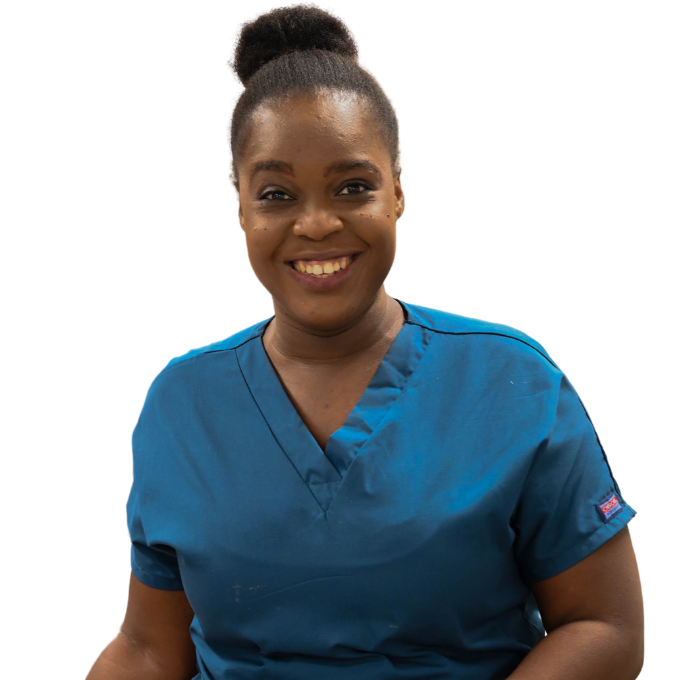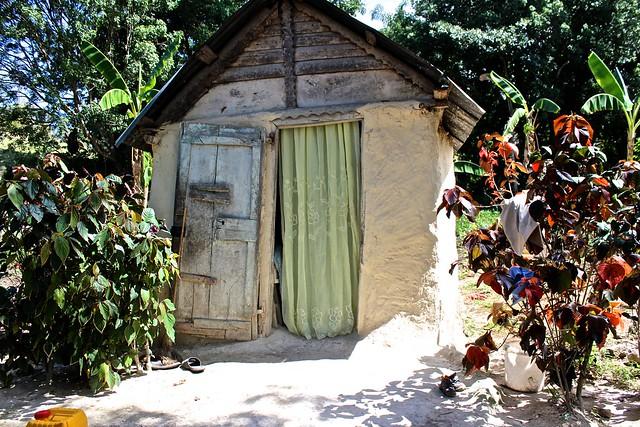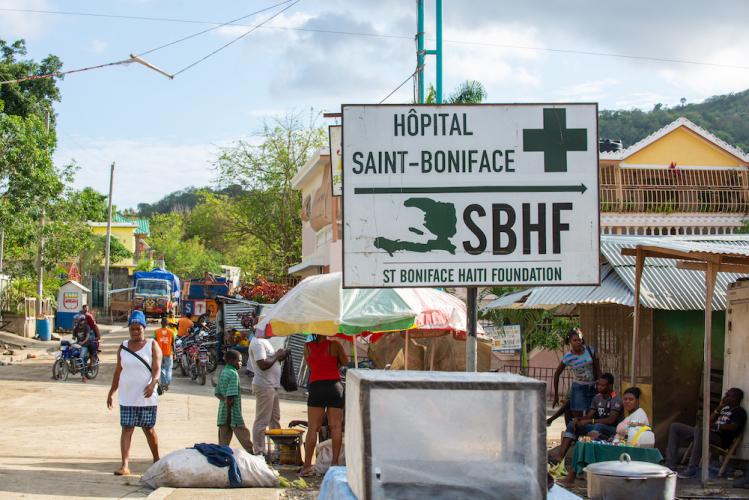“We value making patients feel welcome.”
Your donation will help Nurse Laguerre provide the highest-quality care to every patient in need.


Erika* has been a patient in our HIV/AIDS program for more than a decade. She comes from Miragoâne, a village on the coast of Haiti’s southern peninsula that is approximately one hour from St. Boniface Hospital by car. For the last seven years, Erika has also been a treatment facilitator for our HIV/AIDS program, helping newly-diagnosed patients understand our treatment program. This is her story, in her own words.
I work at St. Boniface helping patients who are tested for HIV. If someone’s test results come back positive, we must be very attentive.
I am the person who meets with each patient when they receive their test results and connects them to the social worker and psychologist in the program and brings them to the pharmacy. I help them with this until they become accustomed to the support program that we provide at the hospital. This job is extremely important because often, people are very afraid when they are given their test results. It can be very overwhelming.
But I am there to support them, I am there to show them that they can live a healthy life if they take their medicine and that there is no reason to be afraid.
But I am there to support them, I am there to show them that they can live a healthy life if they take their medicine and that there is no reason to be afraid.
Erika, HIV patient and care provider
I am a patient too.
When I found out my test results, I was not given the support that we provide here at St. Boniface.
Before I came to St. Boniface, I used to get care at another hospital. The hospital there was not the best for their patients. I was pregnant at the time and I knew that I would need additional help for my baby. I asked for help to get to St. Boniface because I didn’t have the means to pay to give birth at [another] hospital.
I came [to St. Boniface Hospital] in 2009 and I was amazed by the way that I was received here … I didn’t need to pay to give birth, and I was given the opportunity to be in the HIV program. I always made sure to take my medication. And I grew healthy and I was a great success for the hospital. The staff in the program saw how well I was doing, and the nurses in the community health department offered me a position at the hospital.
I am happy to be working in the program. Sometimes we have patients that come here who really feel hopeless, and I sit with them to talk, I show them how to take the medicine, and I explain to them my own experiences because it has been 14 years since my diagnosis and I live well. After some time working with them, the patients start to feel better in the same way that I did. I feel like my job has been done when I see that our patients are no longer discouraged.

You know that in life, not everything is easy. You just need courage to face the challenges that you find in life. The biggest success for me has been that the hospital has given me the opportunity to live a good life.
This is important, because socially if you have an HIV positive status you are stigmatized.
For myself, I was very stigmatized. When my kids went to school, the other children would not sit near them, because they knew that their mom was positive … they didn’t want to be near them. I also had many challenges in my home. I had a small market at my house and people were afraid to buy anything from me. After some time, they saw that I looked healthy and the people in town no longer thought that I was infected.
During that entire time, I did my best to stay strong and not hide from the world. I have spoken with many people who feel like they must hide from the world because of their status … That is why the support groups in our program are so important. Because we are living in a country where people are still not very educated about HIV/AIDS, and therefore there is a lot of fear and stigma. I would like for us to help educate people more so that we can reduce the stigma in this country.
As you can see I am not afraid to talk about my experiences or my status. I am not afraid because it has been 14 years since I started taking my medication and I am still alive. More than that, I am healthy, and I am living a life where I can do whatever I choose.
*Name has been changed to protect the patient’s privacy
Your donation will help Nurse Laguerre provide the highest-quality care to every patient in need.
